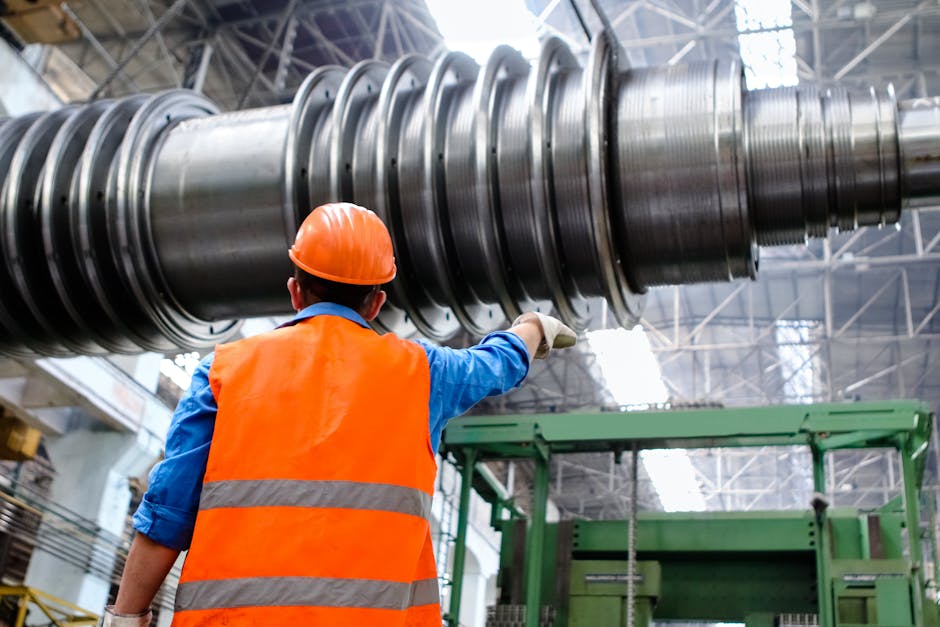Best Practises in Manufacturing Cost Estimating
In the realm of manufacturing, precise cost estimation is paramount for informed decision-making and operational efficiency. ‘Best Practises in Manufacturing Cost Estimating’ encapsulates a strategic approach that empowers organisations with the ability to meticulously forecast and manage expenses.
This entails a comprehensive understanding of the interplay between various cost drivers, the integration of advanced estimation methodologies, and the leveraging of technological advancements. By adhering to these best practises, manufacturing entities can harness greater control over their financial resources, optimise production processes, and bolster their competitive edge.
This concise guide is tailored for professionals seeking a disciplined and methodical framework to navigate the intricate landscape of manufacturing cost estimation.
Key Takeaways
- Accurate cost estimation is crucial for financial planning and decision-making.
- Advanced cost estimating techniques, such as parametric modelling and sensitivity analysis, enhance accuracy and facilitate scenario planning.
- Technology, including AI automation and digital tools, revolutionises cost estimation by enhancing accuracy and efficiency.
- Integrating cost estimation into operations through advanced software and continuous improvement processes optimises resource allocation and production processes.
Importance of Accurate Cost Estimation

The accurate estimation of manufacturing costs is essential for a company’s financial planning and operational decision-making. The importance of accurate cost estimation cannot be overstated, as it directly impacts various facets of business operations.
Precise cost estimation forms the foundation for setting competitive prices, determining the feasibility of new product development, and evaluating the profitability of existing products. Moreover, it enables businesses to make informed decisions regarding resource allocation, production planning, and inventory management.
Inaccurate cost estimation can lead to severe consequences such as financial losses, suboptimal pricing strategies, and inefficient resource utilisation. It is crucial for companies to employ robust cost estimation methodologies and tools to ensure accuracy in forecasting expenses related to raw materials, labour, overhead, and other manufacturing costs.
Factors Influencing Manufacturing Cost

In the realm of manufacturing, various factors significantly influence the overall production costs. Inflation rates play a pivotal role in shaping manufacturing costs. Fluctuations in inflation rates can impact the prices of raw materials, labour, and other essential inputs, directly affecting the overall cost of production.
Moreover, the supply chain plays a critical role in determining manufacturing costs. Factors such as transportation costs, lead times, and the stability of the supply chain can have substantial cost implications. Disruptions in the supply chain can lead to increased costs due to delays, expedited shipping, or alternative sourcing. Additionally, the efficiency and reliability of the supply chain directly impact production costs, as a well-optimised supply chain can lead to cost savings.
Understanding and effectively managing these factors are crucial for maintaining control over manufacturing costs.
Transitioning into the subsequent section about ‘advanced cost estimating techniques’, it is imperative to consider these influencing factors when implementing advanced cost estimating techniques to ensure a comprehensive and accurate cost estimation process.
Advanced Cost Estimating Techniques

Employing advanced cost estimating techniques is essential for optimising manufacturing expenses and ensuring accurate financial projections. Parametric modelling, a widely-used advanced technique, involves using statistical data and mathematical models to estimate costs based on specific parameters such as production volume, materials, and labour. This approach enables a more precise estimation by considering the relationships between different cost drivers. Additionally, sensitivity analysis is a crucial technique that evaluates how variations in input parameters affect the overall cost estimate. By identifying the most influential factors, manufacturers can focus on mitigating risks and optimising resources to minimise cost overruns.
These advanced techniques provide a deeper understanding of cost structures and enhance the accuracy of cost estimates, enabling better decision-making. Moreover, they facilitate scenario planning, allowing manufacturers to assess the potential impact of changes in variables, such as material prices or production volume, on overall costs.
In the subsequent section, we will explore the impact of technology on cost estimation, shedding light on the transformative potential of digital tools and methodologies in refining cost estimation processes.
Technology’s Impact on Cost Estimation

How can technology revolutionise the process of cost estimation in manufacturing? The impact of technology on cost estimation in manufacturing cannot be overstated. The integration of AI automation and digital tools has significantly enhanced the accuracy and efficiency of cost estimation processes. Digital tools enable real-time data collection and analysis, allowing for more accurate predictions and adjustments to be made. AI automation has streamlined the entire process, reducing the likelihood of human error and providing more reliable cost estimates.
| Benefits of Technology in Cost Estimation ||—|—|| Improved Accuracy || Enhanced Efficiency |
Integrating Cost Estimation Into Operations

The integration of cost estimation into manufacturing operations is essential for optimising resource allocation and ensuring cost-effective production processes. By seamlessly incorporating cost estimation into operations, companies can enhance their operational efficiency and make informed decisions that drive profitability.
Here are key strategies for integrating cost estimation into manufacturing operations:
-
Utilise cost estimation software: Implementing advanced cost estimation software can streamline the process, provide accurate cost projections, and enable real-time adjustments based on changing variables.
-
Integrate cost estimation into production planning: By integrating cost estimation into production planning, companies can ensure that cost considerations are factored into every aspect of the manufacturing process.
-
Leverage historical data for cost estimation: Analysing historical cost data can provide valuable insights for future cost estimations, enabling better forecasting and budgeting.
-
Continuous improvement through feedback loops: Establish feedback loops to continuously refine cost estimation models and processes, allowing for ongoing improvements in accuracy and efficiency.
Frequently Asked Questions
What Are the Most Common Challenges or Obstacles That Manufacturers Face When Trying to Implement Accurate Cost Estimation Practises?
Challenges in accurate cost estimation for manufacturers often stem from complex supply chains, evolving technologies, and market volatility. Strategies for adaptation include leveraging data analytics, enhancing collaboration across departments, and integrating real-time cost tracking systems.
How Can Manufacturers Ensure That Their Cost Estimation Processes Are Adaptable to Changes in Market Conditions and Industry Trends?
Manufacturers can ensure adaptable cost estimation processes by employing dynamic pricing models, leveraging real-time market trend analysis, and utilising scenario planning. This approach enables proactive adjustments to pricing strategies, production schedules, and procurement decisions.
Are There Any Specific Regulations or Standards That Manufacturers Should Be Aware of When Conducting Cost Estimation for Their Products?
Regulatory compliance and adherence to industry standards are essential in manufacturing cost estimation. Quality control measures and technology integration must aline with these requirements to ensure accurate and reliable cost estimates for products.
What Are Some Potential Consequences of Inaccurate Cost Estimation in Manufacturing, and How Can These Be Mitigated?
Inaccurate cost estimation in manufacturing can lead to significant financial repercussions. Mitigating consequences involves improving accuracy through robust data analysis and forecasting, addressing cost estimation challenges, and overcoming implementation obstacles to ensure precise budgeting and decision-making.
Can You Provide Examples of Successful Cost Estimation Strategies That Have Been Implemented in Real-World Manufacturing Operations?
Successful implementation of cost estimation examples in real-world manufacturing operations includes leveraging historical data for accurate forecasting, employing activity-based costing for precise allocation, and integrating advanced software systems for streamlined analysis. These strategies optimise manufacturing cost estimation.
Conclusion
In conclusion, accurate cost estimation is crucial for effective manufacturing operations. By considering factors such as materials, labour, and overhead, manufacturers can better understand and control their costs.
Advanced techniques and technology play a significant role in improving the accuracy of cost estimation. Integrating cost estimation into operations can lead to better decision-making and improved profitability.
Overall, adopting best practises in manufacturing cost estimating is essential for success in the competitive manufacturing industry.
Contact us to discuss our services now!
